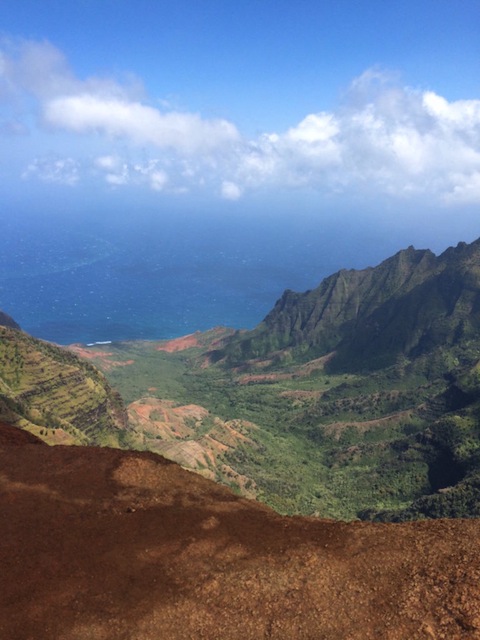Facebook's Mark Zuckerberg Suing Native Hawaiians for Ancestral Lands

In an effort to make the 700 acres of beachfront property he purchased in 2014 on the North Shore of Kauai as secluded as possible, three companies controlled by Facebook CEO Mark Zuckerberg are suing more than 300 people—living and passed on—with ancestral links to the land.
The Honolulu Star Advertiser reports there are close to a dozen small parcels within the estate purchased by Zuckerberg that are owned by Hawaiian families who have rights to be on the property.
The legal action Mark Zuckerberg is trying to push is called “quiet title and partition,” and according to the Star Advertiser it isn’t uncommon in Hawaii.
According to a legal primer called “E ‘Onipaa i ke Kulaiwi” by the Center for Excellence in Native Hawaiian Law: “Quiet title and partition actions contribute to the diminution of Native Hawaiian-held ancestral lands by, among other things, disrupting traditional notions of ‘ohana and kuleana. Partition by sale in particular is highly problematic for the Native Hawaiian community because it severs a family’s connection to ancestral land.”
Kuleana lands refer to land acquired by Hawaii citizens through passage of The Kuleana Act of 1850, which allowed private ownership of land. The lands often pass down through generations without documentation. The Star Advertiser noted that the quiet title law can be used to establish legal title to kuleana lands, but it doesn’t happen often because it is expensive.
“This is a big problem in Hawaii,” a local lawyer told the Star Advertiser. The lawyer is not involved in this case, but chose not to be named because of how sensitive this issue is.
Zuckerberg’s lawyer, Keoni Shultz, told CNBC: “It is common in Hawaii to have small parcels of land within the boundaries of a larger tract, and for the title to these smaller parcels to have become broken or clouded over time.”
“In some cases, co-owners may not even be aware of their interests,” Shultz continued. “Quiet title actions are the standard and prescribed process to identify all potential co-owners, determine ownership, and ensure that, if there are other co-owners, each receives appropriate value for their ownership share.”
The Star Advertiser noted one suit that simply named Oma as the defendant, a Hawaiian woman believed to be the first private owner of a parcel on the land bought by Mark Zuckerberg. It was tradition in old Hawaii to have no surname. Another case names defendants who have long passed on: Kelekahi, Palaha, Laka, Lote, Luliana, Kapahu, and Kaluuloa.

A view of the 700 acres Facebook CEO Mark Zuckerberg purchased on Kauai's North Shore. viewfromhawaii.com
The case the Star Advertiser calls the most complicated is filed against some 300 defendants who are descended from an immigrant Portuguese sugar cane plantation worker. His name was Manuel Rapozo and he is listed as having bought four parcels totaling two acres in 1894.
One of his descendants, Carlos Andrade, 72, a retired University of Hawaii professor, is a co-plaintiff for Zuckerberg helping ensure family property isn’t lost to the county. According to the Star Advertiser, Andrade lived on his family’s kuleana land from 1977 until recently.
“I feel that each succeeding generation will become owners of smaller and smaller interests, each having less and less percentage of the lands and less and less capability to make sure everyone gets their fair share of (Rapozo’s) investment in the future of his family,” Andrade said in a letter to relatives explaining the situation.
Many don’t know about the land they share in, and Zuckerberg thinks he’ll be helping them out. Others don’t feel that way.

Photo by Leeanne Root
The Na Pali Coast is seen here from above at Na Pali Coast State Park. Much of this side of the Kauai coastline is only accessible by boat. The land purchased by Mark Zuckerberg is on the North Shore of the island, but not far from this park.
Mark Zuckerberg had this to say in a Facebook message about the situation:
“In Hawaii, this is where it gets more complicated. As part of Hawaiian history, in the mid-1800s, small parcels were granted to families, which after generations might now be split among hundreds of descendants. There aren’t always clear records, and in many cases descendants who own 1/4% or 1% of a property don’t even know they are entitled to anything.
To find all these partial owners so we can pay them their fair share, we filed what is called a ‘quiet title’ action. For most of these folks, they will now receive money for something they never even knew they had. No one will be forced off the land.
We are working with a professor of native Hawaiian studies and long time member of this community, who is participating in this quiet title process with us. It is important to us that we respect Hawaiian history and traditions.
We love Hawaii and we want to be good members of the community and preserve the environment. We look forward to working closely with the community for years to come.”
Some comments on his Facebook message note the historic reminders this purchase and quiet title suit bring up.
Kamana Kinimaka said: “All that land you occupy is just a reminder to the Native People of how deep pockets push aside culture, tradition and legacy. We are holding on to those parcels because it’s our last chance to keep the land our ancestors walked, fought and birthed on. What you’re doing is a repeat of history, in a different form. You’re occupying land in an illegally occupied Nation, distracting birth right occupants by the money that occupies your life.”
Kristin Paulo agrees: “He’s forcing quiet title which means if the indigenous people who have rights to that land can’t afford to defend themselves they forfeit the land after 20 days. He’s not telling the full story here. But we’re going to fight him. I know several people who aren’t going to sell. He underestimated us.”
Paulo is correct, and many wont be able to afford to defend their land. As the Star Advertiser notes, “if a judge allows an auction, anyone with the money to back up their bid can participate.” But owners may also feel like they are being forced to participate in something they didn’t ask for.
Those named in the suit have 20 days to respond.
